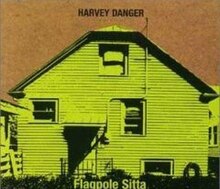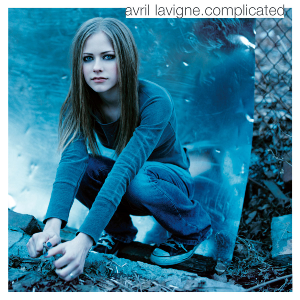
"Complicated" is the debut single by Canadian singer-songwriter Avril Lavigne from her debut album, Let Go (2002). It was released on 11 March 2002 by Arista Records. Lavigne and production team the Matrix are credited as writers. Production on the song was helmed by the Matrix. According to Lavigne, the song is about being honest with oneself rather than "putting on a face".

Harvey Danger was an American alternative rock band. It was formed in 1992 in Seattle, Washington, by Aaron Huffman and Jeff J. Lin, who were both journalism students at the University of Washington. Drummer Evan Sult and singer Sean Nelson were brought into the band in 1993, solidifying the band's lineup for the remainder of their initial existence.

"MMMBop" is a song written and performed by American pop rock band Hanson. It was released on April 15, 1997, as the lead single from their first full-length studio album, Middle of Nowhere (1997). The song was nominated for two Grammys at the 40th Annual Grammy Awards and is the band's most successful single to date. "MMMBop" was a major success worldwide, reaching number one in at least 12 countries, including Australia, Canada, Germany, New Zealand, the United Kingdom and the United States.
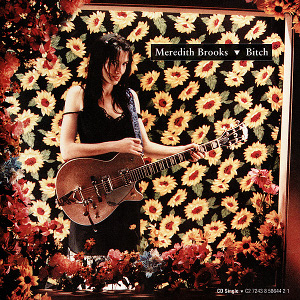
"Bitch" (also known by its censored title "Nothing in Between" and later as "Bitch (Nothing in Between)") is a song by American singer-songwriter Meredith Brooks and co-written with Shelly Peiken. It was released in March 1997 as the lead single from Brooks' second album, Blurring the Edges (1997). The song was produced by punk notable Geza X.

Where Have All the Merrymakers Gone? is the debut studio album by American rock band Harvey Danger. It was initially released by the independent record label the Arena Rock Recording Company on July 29, 1997. The second song on the album, "Flagpole Sitta", received extensive airplay in the United States and resulted in the band's fame. As the song gained national attention, the album was picked up and reissued by Slash Records, a label associated with London Records. On July 29, 2014, 17 years to the day after the album's initial release, Where Have All the Merrymakers Gone? was re-released, for the first time as a vinyl LP, by No Sleep Records. The album has been described by Fuse as "a definitive indie power pop punk record at a time and place where grunge reigned supreme".

King James Version is the second studio album by American rock band Harvey Danger, released on September 12, 2000, through London-Sire Records. It was the band's only album recorded for a major label, and their last with drummer Evan Sult. Written and recorded and over the span of 16 months with producer John Goodmanson, the album marked a substantial departure from the lo-fi sound of the band's debut Where Have All the Merrymakers Gone? (1997); it encompassed a variety of rock music styles and explored "the conflict between faith and skepticism". Although the bulk of the album's material was recorded in March and April 1999, work on the album continued periodically until February 2000 due to a dispute surrounding Harvey Danger's contract, which delayed its release.

"Song 2" is a song by English rock band Blur. The song is the second song on their eponymous fifth studio album. Released physically on 7 April 1997, "Song 2" peaked at number two on the UK Singles Chart, number four on the Australian ARIA Singles Chart, and number six on the US Billboard Modern Rock Tracks chart.

"Buddy Holly" is a song by the American rock band Weezer. The song was written by Rivers Cuomo and released by DGC as the second single from the band's debut album, Weezer (1994). The lyrics reference the song's namesake, 1950s rock-and-roll singer Buddy Holly, and actress Mary Tyler Moore. Released on September 7, 1994—which would have been Holly's 58th birthday—the song reached number two on the US Billboard Modern Rock Tracks chart and number 18 on the Billboard Hot 100 Airplay chart. Outside the US, the song peaked at number six in Canada, number 12 in the United Kingdom, number 13 in Iceland, and number 14 in Sweden. The song's music video, directed by Spike Jonze, earned considerable exposure when it was included as a bonus media file in Microsoft's initial successful release of the operating system, Windows 95.

"Bitter Sweet Symphony" is a song by the English rock band the Verve, from their third studio album, Urban Hymns (1997). It was produced by Youth and released on 16 June 1997 by Hut Recordings and Virgin Records as the album's lead single.
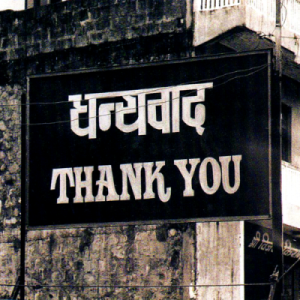
"Thank U" is a song by Canadian-American recording artist and songwriter Alanis Morissette from her fourth studio album, Supposed Former Infatuation Junkie (1998). The song was written by Alanis Morissette and Glen Ballard, who produced her previous album, Jagged Little Pill (1995). Morissette wrote the song after she came back from a trip to India. Maverick and Reprise Records released the song as a single on October 12, 1998.

"Smooth" is a song performed by American rock band Santana and Rob Thomas of Matchbox Twenty, who sings the lead vocals. It was released on June 15, 1999, as the lead single from Santana's 1999 studio album, Supernatural. It was written by Itaal Shur and Thomas, who re-wrote Shur's original melody and lyrics, and produced by Matt Serletic.

"Wishlist" is a song by the American rock band Pearl Jam. Written by vocalist Eddie Vedder, "Wishlist" was released on May 5, 1998, as the second single from the band's fifth studio album, Yield (1998). In the United States, the song peaked at number six on both the Billboard Mainstream Rock and Modern Rock Tracks charts. The song was included on Pearl Jam's 2004 greatest hits album, rearviewmirror .

"One Headlight" is a song by American rock band the Wallflowers. The song was written by lead singer Jakob Dylan, and produced by T Bone Burnett. It was released in January 1997 as the second single from the band's second studio album, Bringing Down the Horse (1996).

"A Long December" is a song by American rock band Counting Crows. The ballad is the second single and 13th track from their second album, Recovering the Satellites (1996). Lead singer Adam Duritz was inspired to write the track after his friend was hit by a motorist and injured, making the song about reflecting on tragedy with a positive disposition.

The discography of American nu metal band Korn consists of 14 studio albums, three live albums, eight compilation albums, seven video albums, six extended plays, 47 singles, 16 promotional singles and 53 music videos. Ten releases have gone platinum, and two gold. 15 releases have charted in the top 10 in the United States.

"3AM" is the third single and the third track from American rock band Matchbox 20's debut album, Yourself or Someone Like You (1996). Written by Rob Thomas, Jay Stanley, John Leslie Goff, and Brian Yale, the song was inspired by Thomas dealing with his mother's cancer as a teenager. The song was officially serviced to US modern rock radio in October 1997 and was given a commercial release outside North America the following month.

"Push" is a song by American rock band Matchbox Twenty. It was released in 1997 as the second single from their debut album, Yourself or Someone Like You (1996). After landing "Long Day" on several rock radio stations paving the way, "Push" topped the US Modern Rock Tracks chart and became one of the band's signature songs.
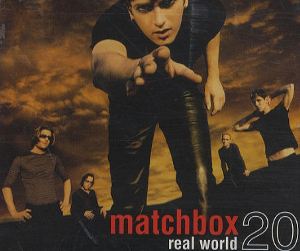
"Real World" is a song by American rock group Matchbox 20. It was released in March 1998 as the fourth single from their debut album, Yourself or Someone Like You. The single was initially ineligible to chart on the US Billboard Hot 100 due to not receiving a physical release in North America; it instead peaked at number nine on the Billboard Hot 100 Airplay chart in August 1998. However, in December 1998, the Hot 100 chart rules were changed to allow airplay-only singles to chart, and "Real World" became the band's first single to enter the listing, debuting and peaking at number 38. Worldwide, "Real World" reached number five in Canada and number 40 in Australia.
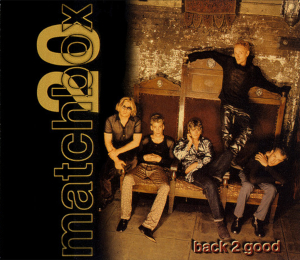
"Back 2 Good" is a song by American rock band Matchbox 20, released as the fifth single from their 1996 debut album, Yourself or Someone Like You, in September 1998.

"She's Got All the Friends That Money Can Buy" is the first single released from Chumbawamba's album WYSIWYG. The song's lyrics describe a wealthy socialite who's benefited from her parents' wealth. Upon its release, the song received mixed reviews from critics and was generally unsuccessful, failing to enter the UK Singles Chart or the Billboard Hot 100 and receiving very little airplay. The song's B-side, "Passenger List for Doomed Flight #1721", was subject to controversy upon its release, due to its lyrics' criticism of a number of prominent social figures.
